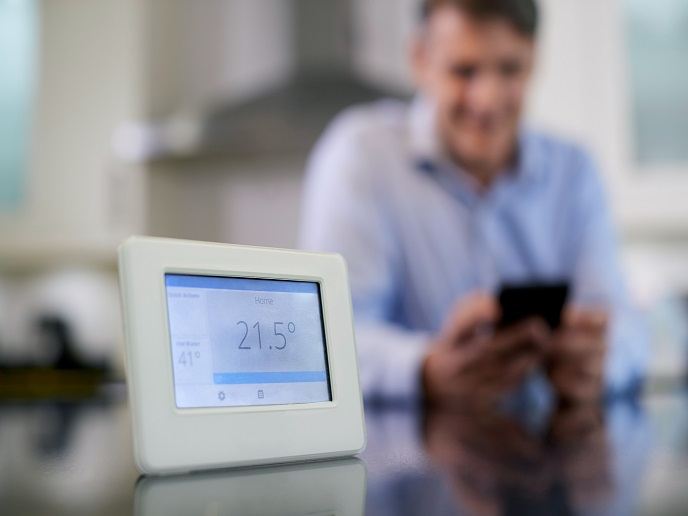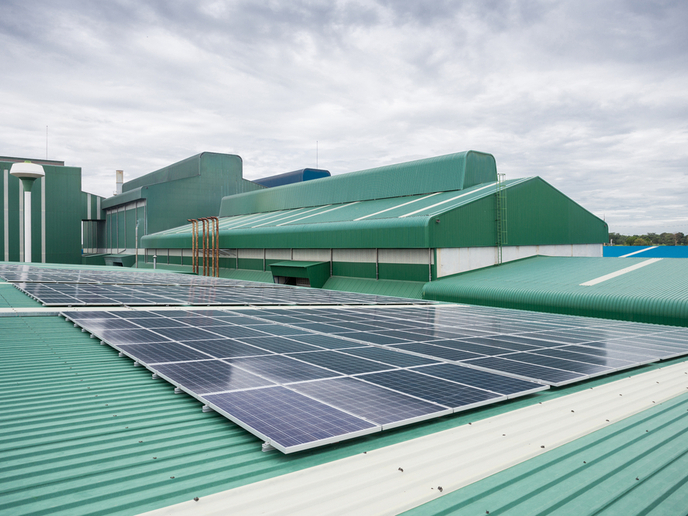Smart application promotes energy efficiency and savings for households
Most European households don’t know their daily or monthly electricity consumption – domestic energy use would often become visible to the user once per year. As a first step to overcome this problem, EU Member States have already committed to roll out smart meters that should cover at least 80 % of electricity consumers by 2020. Smart meters allow accurate billing through communication (hourly or more frequently) between the electricity meters recording the actual consumption and the monitoring utility. The granular or detailed consumption data are then forwarded to the consumers – this low-level feedback motivates them to adjust their habits to improve energy efficiency and therefore save money.
Information technology solutions for energy markets and end users
A smartphone and tablet application for end-user energy management and savings developed by the EU-funded PEAKapp(opens in new window) project increases integration of smart meters, enabling consumers to monitor their instant consumption and gauge how to use energy more efficiently. “Our key ambition was to develop a tool that allows household energy consumers to become an integral part of the energy transition. We targeted especially those who do not own photovoltaics, an electric car, or fancy home automation gear,” notes project coordinator Johannes Reichl. PEAKapp’s smartphone application only requires a smart meter to be installed at home. Importantly, the application enables households to benefit from various new electricity tariff models. The tariff structures included offer discounts during peaks of electricity production from renewable energy resources as a way to enable households to reduce their personal carbon footprints. With PEAKapp serving as the interface between energy markets and households, citizens receive information about their electricity consumption and are able to access green electricity at times when the sun is shining or the wind blows. Furthermore, the application works with social network integration and includes some games. “Consumers will be able to monitor their instant electricity consumption as well as learn to use energy in a more efficient manner and share their experiences on social networks. These comparative challenges offer greater transparency on how energy behaviour affects a household’s carbon footprint,” adds Reichl.
Empowering citizens’ role in the clean energy transition
The project team carried out field tests in four different countries – Austria, Estonia, Latvia and Sweden – to assess the efficacy of the newly developed system. In total, more than 6 000 households used the application throughout the project lifetime. Almost 3 000 of them offered the project team access to their smart metered load profiles for detailed scientific analyses. After 69 weeks of field testing, participating households were asked if using the app changed their behaviour and energy-related decision-making. The results showed that 40 % of users found that they spent more attention to the way energy is used in their household, 14 % of users replaced inefficient energy appliances with more efficient ones and 22 % percent said they changed their cooking/washing behaviour. Active users were able to decrease their daily electricity consumption by 7 %, on average. “Field study results clearly demonstrated that a substantial proportion of household electricity consumers are willing to participate in the energy transition. They just need the right tools to engage with energy-related topics and their utility providers,” explains Reichl. This market-ready product promotes the vision of an energy system with citizens at its core. However, more time is still needed for households to realise their active role in the energy system and participate in local energy communities that foster joint utilisation of local renewable energy.







